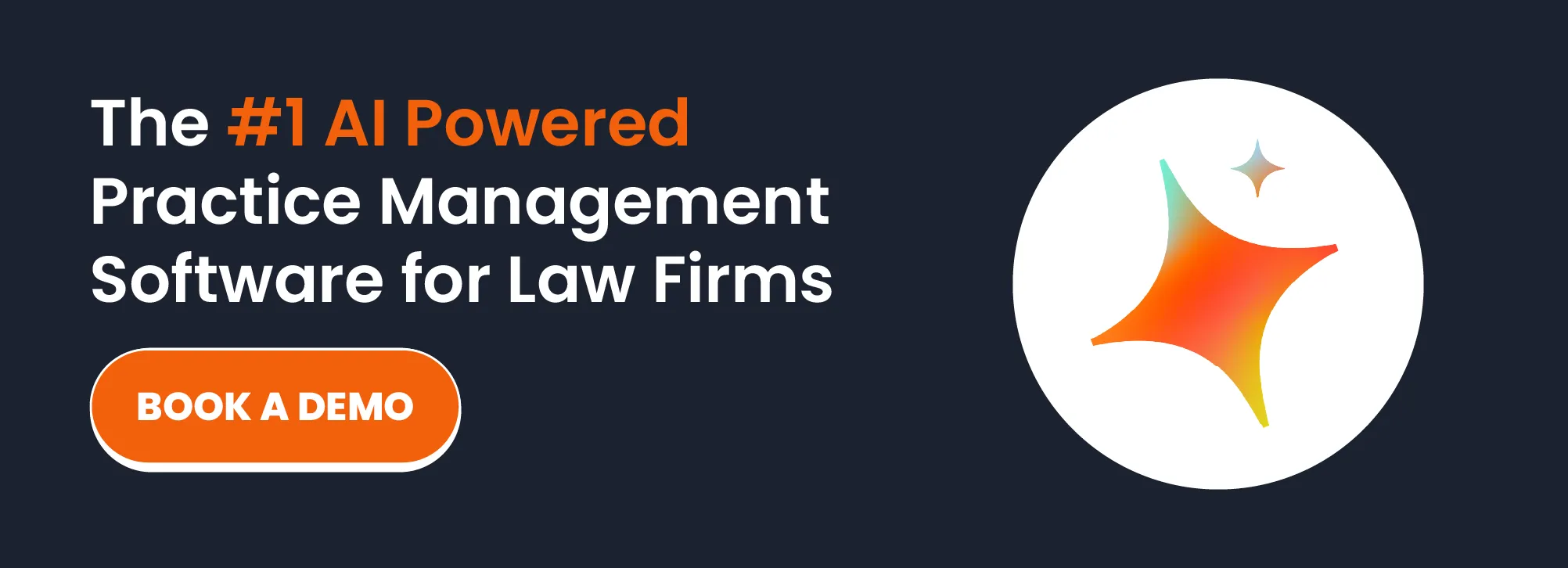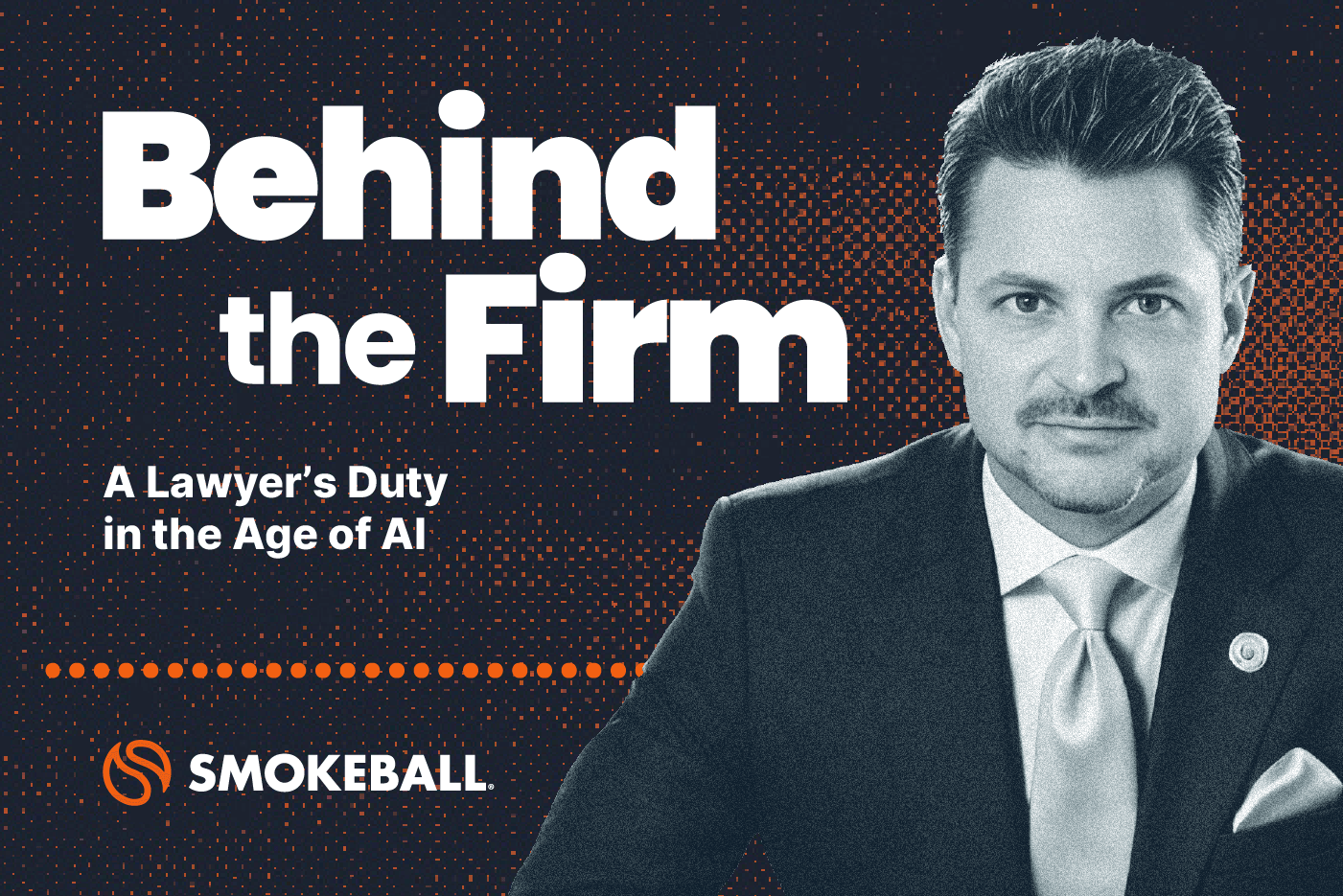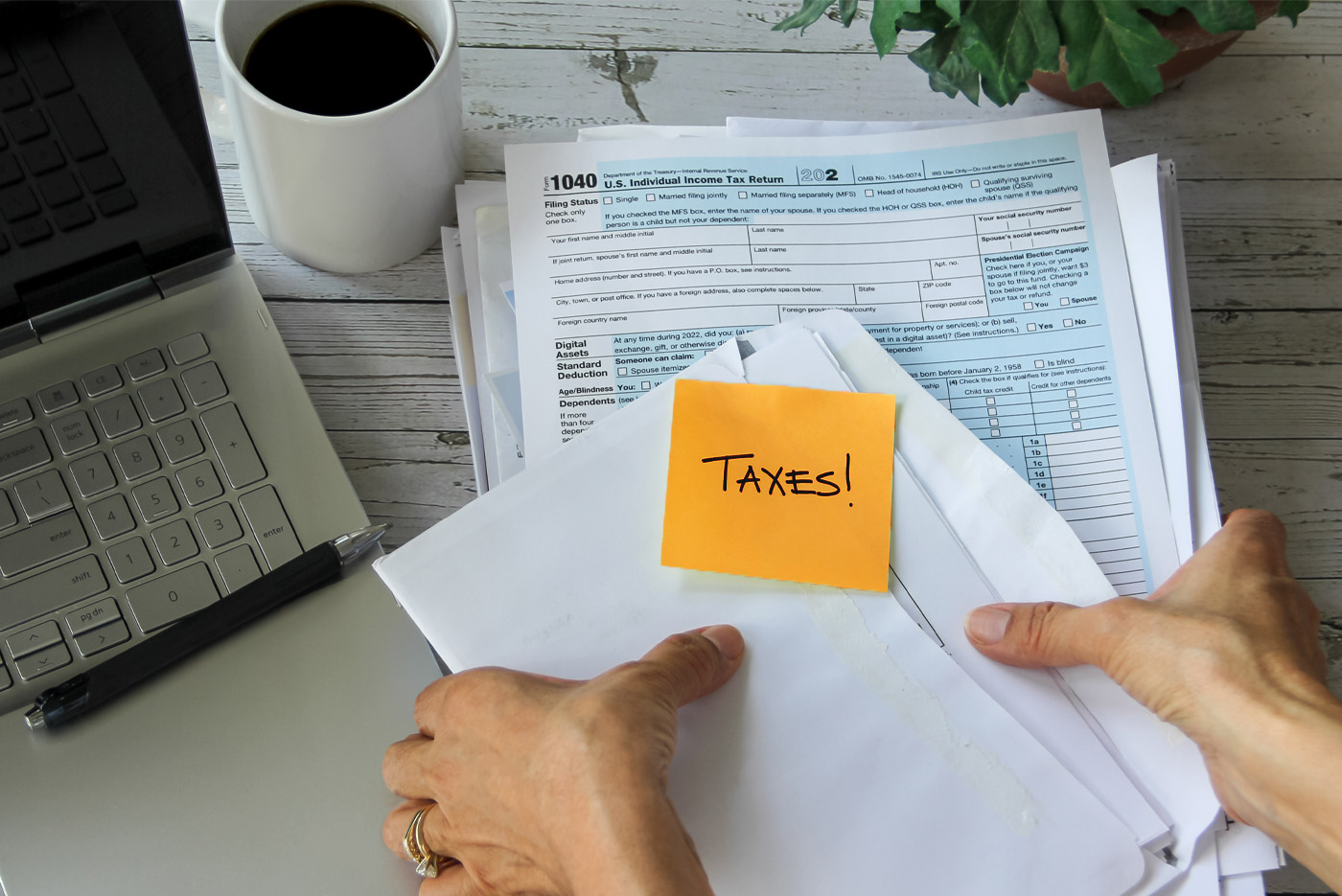Overworked and Overstressed: Why Lawyers Need AI in Their Practices

Written by
Stephen Embry
|
June 1, 2025
Written by Smokeball
|
June 1, 2025

Written by Jordan Turk
|
June 1, 2025
%20(1).webp)
It’s no secret that lawyers are overworked and overstressed. More and more research shows this to be true. Here are a few statistics that bring the issue into sharp focus:
- In a 2023 survey, 78% of lawyers said they were burned out, and nearly half were thinking about leaving their jobs
- According to an ABA study, 28% of lawyers experienced depression, 19% reported anxiety, 21% had alcohol use problems, and 11% had drug use issues
- More than 80% of attorneys have experienced burnout at some point in their careers
- The legal profession is, in fact, ranks as the most stressful occupation in America, with lawyers scoring 2.7 out of 6 on a national stress scale — the highest among all professions analyzed according to another study
The reasons for this stress run the gamut from client pressures and demanding deadlines to high stakes matters. Another main reason lawyers are stressed is the long hours and heavy workloads.

Time Is the Real Enemy
Consider the problem that led to stress when I was practicing. Most of the stress didn't come from doing the work I was trained for and excelled at. It came from having to do things I was either over- or under-qualified to do but had to handle anyway. Take for example complying with billing guidelines. Many of my clients had detailed guidelines that were all different. That meant I had to spend hours reviewing bills and comparing them to the guidelines. It meant leafing through the guidelines over and over again to find the right point.
The real frustration came from not having enough time to focus on what I did best. When that happened, practicing law became incredibly frustrating, often leaving me going home angry and drained.
There are lots of suggestions for reducing lawyer stress: setting boundaries on work-life balance, remote working, flexible hours, and wellness programs. These ideas are all well and good — but they mostly treat the symptoms, not the disease. And, many times, attorneys fail in the execution of these actions. It’s easy to say you’re going to stop answering emails after 10pm; it’s harder to actually ignore the Outlook pings as you lay down for bed and think about getting one last billable hour in before sleep takes you.
By looking more closely at the real causes of lawyer stress, we can see an obvious stress-reducing tool: using automation and generative AI to relieve time pressure.
The Underlying Cause: Inability to Prioritize
The underlying cause of lawyer stress is time, and not being able to use the time we have to work on higher-priority tasks costs us money, and sometimes sanity. Being unable to prioritize our time (or lack thereof) generates stress in several ways:
First, the highest and most important tasks lawyers perform involve high-end advice to clients: strategizing to get the best result, evaluating the problem correctly, and making sound decisions. But all too often, lawyers can’t get to these tasks because their time is eaten up by lower-value work. I remember spending hours, particularly as a younger lawyer making sure I had all the objections I needed to answering interrogatories. Or making sure I had posed all the right interrogatories to protect the record: once I failed to pose an interrogatory seeking the names of all experts and the basis of their opinions. A beginners mistake but it would be so much better had I had access to an exhaustive best practices list that GenAI might provide.
To provide high-end work, you need uninterrupted time to think and analyze. When that time is hijacked by other tasks, lawyers stress and worry over the important things left undone.
Second, lawyers stress over billable hours. After all, it's how most firms make money, and many lawyers' compensation depends partly on meeting billable hour quotas. Time lost to non-billable tasks means having to work longer hours to meet quotas, leading to work-life imbalance, guilt, and ultimately depression.

Pain Points That AI Can Reduce
So what are these time-consuming pain points, and how can AI help?
The first category of pain points is non-billable tasks. Many non-billable tasks have to be done to stay in business and succeed, but they drain time. AI could help with:
- Billing time entries
- Reviewing bills
- Complying with billing guidelines
- Locating prior work product to avoid reinventing the wheel
- Marketing and lead generation
- Client intake and routine follow-up
Another category of stressors is what I call the need to combat uncertainty. Uncertainty is a major source of stress — the worry about whether you've thought of everything, understood all aspects of a problem, or reviewed every detail. AI can help by:
- Preparing lists of potential deposition questions to ease prep stress
- Providing background information quickly to answer client or partner queries
- Spotting flaws in arguments
- Offering a complete set of questions
- Summarizing long emails
- Preparing discovery requests and responses with comprehensive objections
A final category of pain points is repetitive drudgery work. Some tasks simply sap energy because they are boring, repetitive, and tedious. AI could ease the burden of:
- Document review and summarization
- Preparing legal requests and managing workflows
- Reading and answering distracting emails
- E-discovery and data analysis
These are real pain points I experienced daily when practicing law — and I know many lawyers face them still, particularly younger lawyers. When I tried my first case, it wasn’t just presenting the evidence in the best way possible that was intimidating. It was making sure I knew all the objections I might need. It was knowing how to do the mundane things like authenticating evidence and laying a foundation. I could have used the second brain AI could have provided to have all this knowledge at my fingertips.

AI’s Bigger Promise
There’s an old saying: "If I had more time, I would have written a better letter." So much of legal practice could be more rewarding if lawyers had more time to do what they do best. When lawyers are freed from the drudgery and allowed to focus on high-value, intellectually satisfying work, the entire profession becomes more sustainable.
AI holds the promise of creating that time: allowing lawyers to be the best versions of themselves, reducing stress, and making practice more fulfilling. And that’s encouraging.
Learn more about Smokeball document management for law firms:
Book Your Free Demo
Ready to see how Smokeball client intake software helps you Run Your Best Firm? Schedule your free demo!
















